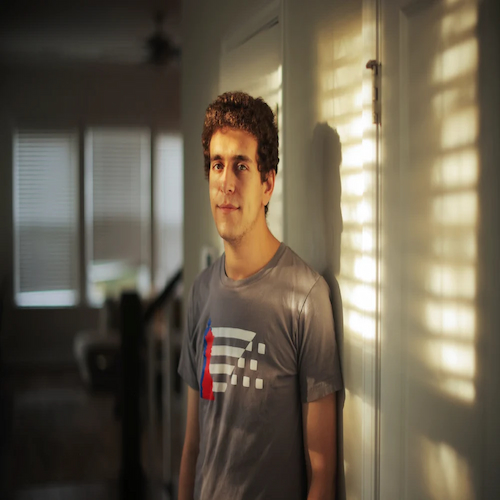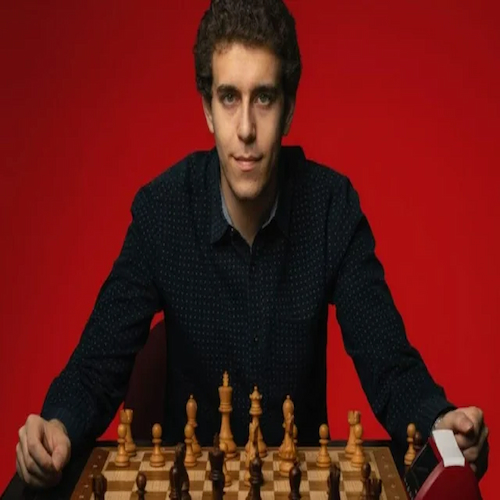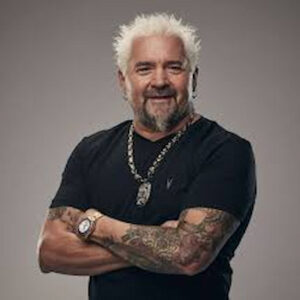Daniel Naroditsky Cause of Death, Bio, Net Worth

Daniel Naroditsky, Biography
Daniel Naroditsky—known to nearly everyone in the chess world simply as Danya—was an American chess grandmaster, author, and commentator whose brilliance extended far beyond the board.
A prodigy from the start, he captured the Under-12 World Youth Chess Championship title in 2007. Six years later, in 2013, he won the U.S. Junior Championship and was officially awarded the grandmaster title at just 18—marking the arrival of a generational talent.
Daniel Naroditsky, Top 200 Chess Player
Though consistently ranked among the top 200 players in the world in classical chess, Naroditsky was especially formidable in faster formats—particularly blitz—where he was regularly ranked inside the global top 25. In 2024, he tied for first in the Swiss stage of the World Blitz Championship, narrowly missing the playoffs on tiebreaks.
Beyond competition, Naroditsky became one of the most influential chess educators of his era. He produced widely beloved instructional content on YouTube and Twitch, authored two books on chess, and contributed regularly to Chess Life and The New York Times.
Daniel Naroditsky, Childhood and Education
Daniel Naroditsky was born on November 9, 1995, in San Mateo, California. His parents were Jewish emigrants from the former Soviet Union—his father, Vladimir, from Ukraine, and his mother, Lena, from Azerbaijan.
He attended Crystal Springs Uplands School in Hillsborough, California, and later enrolled at Stanford University, where he studied history until 2019.
Daniel Naroditsky, Cause of Death
In 2020, Naroditsky relocated to Charlotte, North Carolina — a move that would place him at the heart of one of America’s most vibrant and fast-growing chess communities.
He died on October 19, 2025, at the age of 29. Grandmaster Olexandr Bortnyk and Peter Giannatos—founder of the Charlotte Chess Center—went to his home to check on him and found him peacefully on his couch. The news of his death was announced by the Charlotte Chess Center the following day, with no cause disclosed.
Tributes poured in from across the chess world. American grandmaster Hikaru Nakamura called Naroditsky a trailblazer—someone who helped redefine what chess could look like in the age of streaming and live commentary, bringing both the game and its deep beauty to a new generation of players and fans.
Daniel Naroditsky, Chess
Born in San Mateo, California, on November 9, 1995, Naroditsky learned chess at the age of six from his father.
In 2007, at just 11 years old, he won the Under-12 section of the World Youth Chess Championship with a score of 9½/11—tying with Illya Nyzhnyk and claiming the gold medal on tiebreaks. The victory immediately earned him the FIDE Master title. At the time, he was a member of the historic Mechanics’ Institute Chess Club.
By February 2010, at only 14 years and 3 months old, Naroditsky became the youngest published chess author in history with the release of Mastering Positional Chess: Practical Lessons of a Junior World Champion from New In Chess.
That same year, he scored 7½/9 at the 2010 U.S. Open, sharing second place with Alexander Shabalov, Varuzhan Akobian, and Julio Sadorra—finishing just behind Alejandro Ramírez—a performance that qualified him for the 2011 U.S. Championship.
US Junior Championships
He went on to compete in the 2011, 2012, and 2013 U.S. Junior Championships, winning outright in 2013 with a score of 6½/9, ahead of fellow prodigies Samuel Sevian and Luke Harmon-Vellotti. That victory secured his place in the 2014 U.S. Championship.
Daniel earned the first grandmaster norm at the Benasque Open in July 2011. His second came at the 2013 Philadelphia Open, where he tied for first with Fidel Corrales Jimenez, and he clinched his final norm later that year—again at the Benasque Open. He was officially awarded the grandmaster title in 2013.
READ ALSO: John Travolta, Bio, ‘Bolt,’ ‘Old Dogs,’ and ‘From Paris With Love’
In 2014, he received the prestigious Samford Chess Fellowship. That same year, he tied for fifth place at the high-stakes Millionaire Chess Open in Las Vegas. The following year, he represented the United States at the World Team Championship, scoring 4/7—with wins over Dmitry Jakovenko and Evgeny Postny—and finishing with a strong 2640 performance rating.
Naroditsky competed in the U.S. Championship multiple times—in 2011, 2014, 2015, 2017, and 2021. His most notable result came in the 2021 edition, where he defeated World No. 2 Fabiano Caruana, who held a FIDE rating of 2800 at the time. In 2019, he tied for first place at the U.S. Masters Championship.
Vladimir Kramnik, Naroditsky’s Cause of Death
Authorities have not yet released an official cause of death for Daniel Naroditsky. However, former World Chess Champion Vladimir Kramnik has publicly suggested that there may have been signs of distress surrounding Naroditsky’s final days. According to a report by The Times of India, Kramnik hinted at the possibility of foul play and claimed that those close to Naroditsky overlooked warning signs — though no official investigation or statement has confirmed his remarks.
Daniel Naroditsky: Age, Height, and Weight
The chess master died at the age of 29, having been born on November 9, 1995, and died in October 20, 2025. Unfortunately, information on his height and weight is not publicly available.
Daniel Naroditsky Net Worth
Daniel Naroditsky’s net worth in 2025 was estimated to be around $1 million. The majority of his income did not come from traditional tournament winnings but from his thriving presence in the digital chess world—including YouTube ad revenue, Twitch subscriptions and donations, online coaching, and premium digital chess courses.
In addition to streaming and teaching, he earned from book sales and his widely respected written work for publications such as The New York Times and Chess Life. His largest recorded prize from a single chess event was approximately $17,920 — a figure that underscored how his true financial success came from education and content creation, rather than prize money alone.
Naroditsky built a modern chess career — one where teaching, streaming, and storytelling mattered as much as competition.




